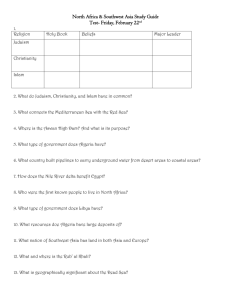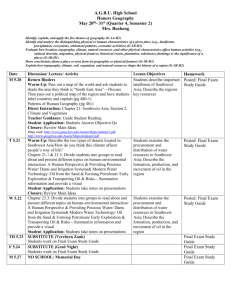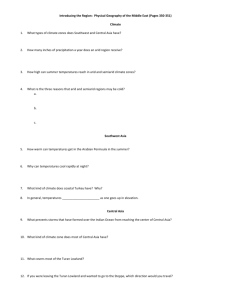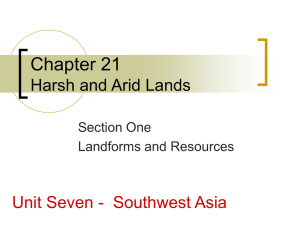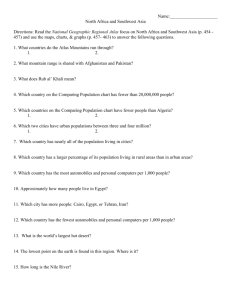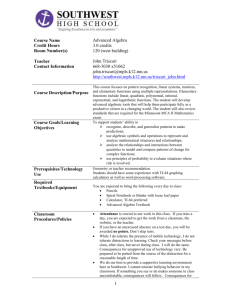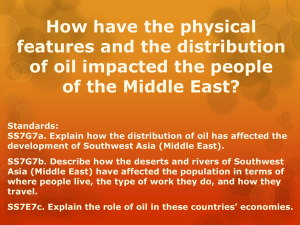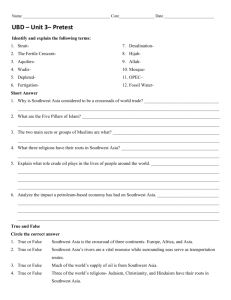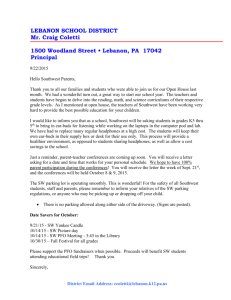Unit 3 Southwest Asia TechBook /66 Directions
advertisement
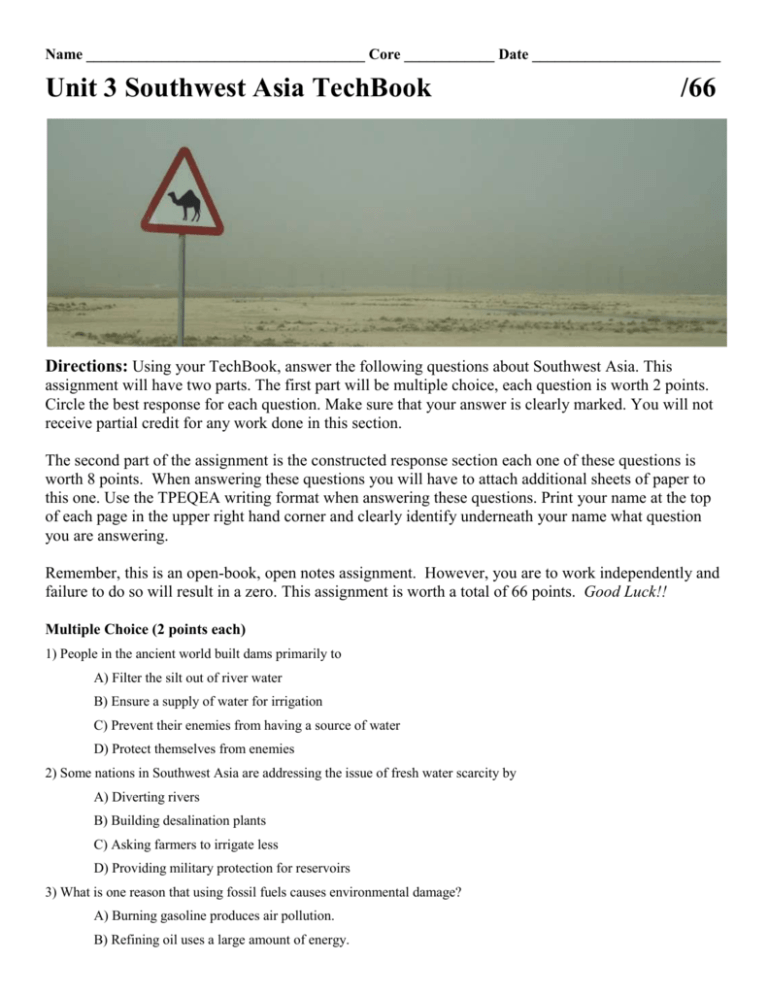
Name _____________________________________ Core ____________ Date _________________________ Unit 3 Southwest Asia TechBook /66 Directions: Using your TechBook, answer the following questions about Southwest Asia. This assignment will have two parts. The first part will be multiple choice, each question is worth 2 points. Circle the best response for each question. Make sure that your answer is clearly marked. You will not receive partial credit for any work done in this section. The second part of the assignment is the constructed response section each one of these questions is worth 8 points. When answering these questions you will have to attach additional sheets of paper to this one. Use the TPEQEA writing format when answering these questions. Print your name at the top of each page in the upper right hand corner and clearly identify underneath your name what question you are answering. Remember, this is an open-book, open notes assignment. However, you are to work independently and failure to do so will result in a zero. This assignment is worth a total of 66 points. Good Luck!! Multiple Choice (2 points each) 1) People in the ancient world built dams primarily to A) Filter the silt out of river water B) Ensure a supply of water for irrigation C) Prevent their enemies from having a source of water D) Protect themselves from enemies 2) Some nations in Southwest Asia are addressing the issue of fresh water scarcity by A) Diverting rivers B) Building desalination plants C) Asking farmers to irrigate less D) Providing military protection for reservoirs 3) What is one reason that using fossil fuels causes environmental damage? A) Burning gasoline produces air pollution. B) Refining oil uses a large amount of energy. C) Petroleum-based plastics cannot be recycled. D) Natural gas is a non-renewable resource. 4) What can oil-importing nations do to control the influence of the Organization of Petroleum Exporting Countries? A) Set a fixed price for oil B) Build more refineries C) Cut down on their consumption of oil D) Ban development of nuclear power plants 5) A country that specializes in producing oil faces the same kind of problem as which of the following? A) A machine with multiple sources of power B) A farmer who grows only one kind of crop C) A company that operates in many regions D) A government with a single all-powerful ruler 6) How would building their own oil refineries help the oil-rich nations of Southwest Asia diversify their economies? A) Oil refineries would make it possible for these nations to slow oil extraction. B) Oil refineries produce less pollution than the oil-extraction process. C) Oil refineries would promote political stability between the oil-rich nations and the rest of the world. D) Oil refineries would give these nations another way to profit from oil production besides extracting oil from the ground. 7) Most of the Arabian Peninsula is covered by A) Grassland B) Desert C) Chaparral D) Mixed forest 8) If two countries in Southwest Asia were threatening to go to war, global oil prices would most likely A) Decline quickly B) Rise until the tensions passed C) Remain basically unchanged D) Go up and down in an unpredictable way 9) Which question is the most relevant for an oil-rich nation that is attempting to protect the future of its economy? A) How can we keep global demand for oil from increasing too quickly? B) How can we use our wealth to better the lives of our citizens? C) How can we stop oil-dependent nations from developing alternative energy sources? D) How can we prevent our oil-industry workers from moving into different industries? 10) Southwest Asia has been at the center of travel and trade because the region A) Was the first to develop human civilization B) Has a history of strong central governments C) is located at the intersection of three continents D) Has an abundant supply of valuable natural resources 11) Which list best describes food that would be part of a typical diet in Southwest Asia? A) Rice and seafood stew B) Hummus and flatbread C) Pasta and tomato sauce D) Lamb kebabs and potatoes 12) The major rivers in Southwest Asia are the A) Tigris and Euphrates B) Nile and Zambezi C) Sajur and Sebou D) Volta and Congo 13) Which statement best explains why many Southwest Asian nations depend on the oil industry to support their economies? A) European colonialism contributed to the development of economies based on extracting resources rather than producing goods. B) Dictators in the region promote economic policies requiring overuse of fossil fuels. C) The region’s location is favorable for transporting fuel to the rest of the world. D) The region’s desert landscape makes it well suited for industries that are harmful to the environment. Constructed Response Questions: (8 points each) 3.1 How do geographic characteristics affect life in Southwest Asia? 3.2 How has the environment shaped life in Southwest Asia? How have humans shaped the environment in this region? 3.3 How have religious and ethnic differences influenced life in Southwest Asia? 3.4 To what extent are Southwest Asian countries democratic? 3.5 What impact has a petroleum-based economy had on Southwest Asia?
